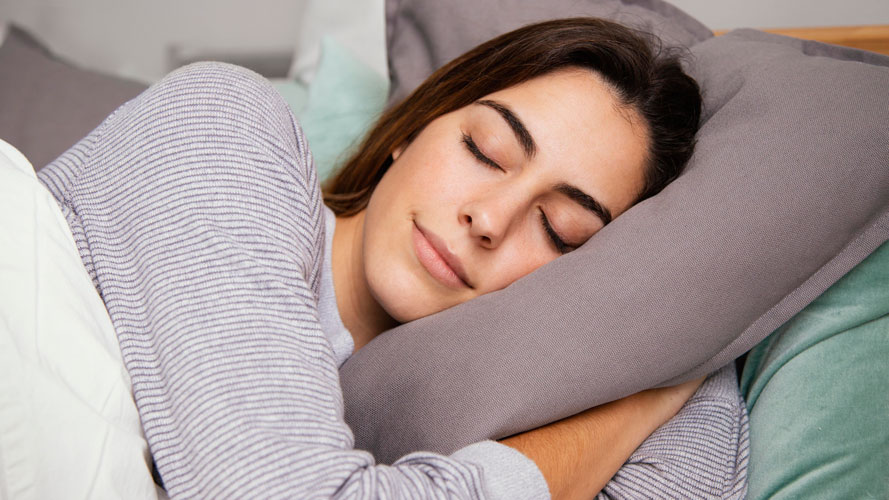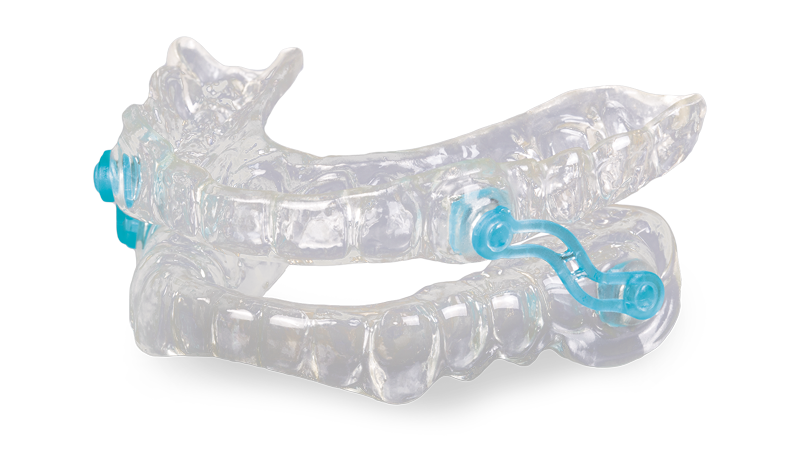What is the Most Effective Snoring Treatment?

Snoring is a common sleep disorder characterized by the repeated rhythmic sounds of airflow through the nasal passages during sleep. It can disrupt the sleeper’s quality of life and may cause fatigue, impaired concentration, and even headaches, not to mention sleep loss for those within earshot.
In many cases, knowing the exact cause of snoring and what treatment is best suited can be challenging. In this blog, we’ll discover a variety of reasons as well as associated treatments to beat snoring sounds once and for all.
What Lifestyle Modifications Should I Consider?
Several lifestyle modifications can help to reduce or stop snoring. These include avoiding alcohol, tobacco, and caffeine late at night, taking a warm shower before bedtime, eating well and exercising to lose weight, wearing a CPAP mask if necessary, and using a nasal breathing pillow or other devices to help find the proper sleep position and keep your airway open at night.
Other lifestyle modifications may help reduce stress and improve sleep hygiene (e.g., avoiding daytime naps, getting enough sleep, and limiting TV time).
Lifestyle and Home Remedies for Snoring
Wear a Nasal Strip or Dilator
A nasal strip or nasal dilator is used to expand the nostrils gently. External nasal dilators are commonly used in cases where there is difficulty breathing through the nasal passage, such as in people with nasal congestion due to allergies or sinus problems. A nasal strip can open the nostrils wide, allowing more air to enter the lungs and helping to clear mucus.
Use an Anti-Snoring Mouthpiece
An anti-snoring mouthpiece is designed to help individuals who suffer from chronic snoring or have other breathing issues related to their sleep.

As you lay down and relax, the soft palate shifts back and down, constricting the airflow through the throat as you sleep. An anti-snoring mouthpiece helps to rectify this issue by implementing one or more of the following features: a flexible or rigid structure that fits into the individual’s mouth, a valve system that regulates airflow, and a mechanism for supporting the jaw bone.
Some mouthpieces have additional features, such as sound-reducing materials or small motors that vibrate the jawbone to help open the airway.
Raise the Head of your Bed
Raising the head of the bed can help to prevent snoring and other breathing problems caused by the position of your body while you sleep. By raising your head, you can open your airway and allow easier air passage into your lungs.
Raising the head may also help to improve overall airflow and reduce pressure in your chest cavity, which can help to keep your breathing passages clear and free-flowing.
Avoid Taking Sedatives Before Bed

It is a common practice among many individuals to take sedatives or sleeping pills before bed to help them fall asleep and reduce their snoring. However, there is some evidence to suggest that this practice may not be beneficial for individuals who are prone to snoring.
It is believed that sedatives may interfere with standard sleep-breathing mechanisms, resulting in higher levels of airway obstruction and increased snoring. It is recommended instead that individuals with snoring consider other strategies to improve their sleep quality, such as managing their stress levels, exercising regularly, and avoiding alcohol and tobacco before bedtime.
Limit or Avoid Alcohol Before Bed
Alcohol can make falling asleep harder and disrupt standard sleep patterns. As such, it is suggested that individuals limit their intake of alcohol before bedtime to improve their sleep quality and reduce their risk of snoring or other breathing issues during sleep.
Reduce Body Weight
In some cases, individuals who are overweight or obese may have excess pressure in their airways, which can make it difficult for them to breathe during sleep. This increased pressure can lead to frequent snoring and other symptoms such as difficulty breathing and wakings up through the night. Losing weight may help reduce this pressure, which may help improve sleep and snoring.
If you Smoke, Stop Smoking
Decreasing exposure to tobacco smoke can trigger a number of changes in the body, including an elevation in levels of hormones and neurotransmitters that promote relaxation and sleep.
Stopping smoking helps to increase oxygen levels in the airways, which can help reduce snoring by enhancing airflow into the lungs.
Obstructive Sleep Apnea Syndrome and other Sleep Disorders
Sleep apnea is when a person temporarily stops breathing during sleep and requires a sleep study to diagnose. Obstructive sleep apnea occurs when your throat muscles intermittently relax and block your airway during sleep, often causing loud snoring or gasping when breathing resumes.
Severe sleep apnea can even raise the risk of ailments like coronary artery disease, heart attacks, heart failure and strokes, making finding suitable treatment options important.
If sleep apnea is causing a loud snoring sound overnight, regardless of sleeping position, it’s time to look into sleep apnea therapy. Sleep apnea is often treated with a device known as a CPAP (continuous positive airway pressure) machine, which forces air into the lungs to keep them open while sleeping. This helps to ensure that enough oxygen enters the blood stream while they are asleep and significantly reduces snoring noise.
Consider A Snore Prevention Appliance
A Snore Prevention Appliance may be your answer when you’ve tried everything from losing weight to using nasal strips and still snoring!

Silent Nite is a device found to be 85% effective at eliminating snoring. The apparatus comprises 2 plastic trays; one covers the upper and lower jaw. Attached by special connectors that gently position your lower jaw slightly forward, Silent Nite helps keep your airway open and prevents soft tissue vibrations that cause snoring.
At the dental office of Dr. Dalesandro & Associates, a questionnaire aids in customizing your appliance for the utmost comfort and effectiveness in treating snoring once and for all. Two dental services appointments, one week apart, and a better night’s rest are yours!
Treat Snoring in Tucson, AZ
Dr. Dalesandro & Associates are exceptionally qualified Tucson dentists to care for all your general, emergency, and preventative dentistry needs – even snoring!
In addition, our staff of Dental Hygienists and Dental Assistants are warm and professional. Plus, we serve multiple family members, from young children to adults. Whatever your needs, from preventative care to restorative such as cavity fillings to emergency first aid services for accidents, we do it all.
The Family Dental Practice Tucson Trusts
Dr. Dalesandro & Associates
At our Tucson dentist office, we strive to make our clients feel safe and proud of their smiles! We keep our dental office clean and ready for your appointment.
Contact us today and set up your first visit with the Dr. Dalesandro dental care team by continuing to explore our website.